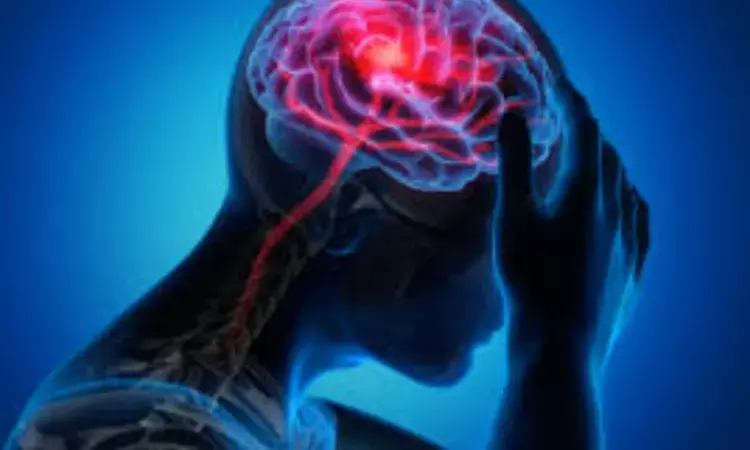- Home
- Medical news & Guidelines
- Anesthesiology
- Cardiology and CTVS
- Critical Care
- Dentistry
- Dermatology
- Diabetes and Endocrinology
- ENT
- Gastroenterology
- Medicine
- Nephrology
- Neurology
- Obstretics-Gynaecology
- Oncology
- Ophthalmology
- Orthopaedics
- Pediatrics-Neonatology
- Psychiatry
- Pulmonology
- Radiology
- Surgery
- Urology
- Laboratory Medicine
- Diet
- Nursing
- Paramedical
- Physiotherapy
- Health news
- Fact Check
- Bone Health Fact Check
- Brain Health Fact Check
- Cancer Related Fact Check
- Child Care Fact Check
- Dental and oral health fact check
- Diabetes and metabolic health fact check
- Diet and Nutrition Fact Check
- Eye and ENT Care Fact Check
- Fitness fact check
- Gut health fact check
- Heart health fact check
- Kidney health fact check
- Medical education fact check
- Men's health fact check
- Respiratory fact check
- Skin and hair care fact check
- Vaccine and Immunization fact check
- Women's health fact check
- AYUSH
- State News
- Andaman and Nicobar Islands
- Andhra Pradesh
- Arunachal Pradesh
- Assam
- Bihar
- Chandigarh
- Chattisgarh
- Dadra and Nagar Haveli
- Daman and Diu
- Delhi
- Goa
- Gujarat
- Haryana
- Himachal Pradesh
- Jammu & Kashmir
- Jharkhand
- Karnataka
- Kerala
- Ladakh
- Lakshadweep
- Madhya Pradesh
- Maharashtra
- Manipur
- Meghalaya
- Mizoram
- Nagaland
- Odisha
- Puducherry
- Punjab
- Rajasthan
- Sikkim
- Tamil Nadu
- Telangana
- Tripura
- Uttar Pradesh
- Uttrakhand
- West Bengal
- Medical Education
- Industry
Tirofiban feasible option for ischemic stroke patients without significant vessel occlusion: RESCUE BT2 trial

China: A recent study has shown that intravenous tirofiban in patients with acute ischemic stroke with no evidence of complete occlusion of large or medium-sized vessels is associated with a greater likelihood of an excellent outcome at 90 days than oral aspirin. The study was featured in The New England Journal of Medicine on June 1, 2023.
Qingwu Yang, Army Medical University (Third Military Medical University), Chongqing, China, and colleagues conducted the RESCUE BT2 trial comprising patients without large or medium-sized vessel occlusion. They studied the effects of tirofiban, a glycoprotein IIb/IIIa receptor inhibitor, in patients with acute ischemic stroke with no evidence of complete occlusion of large or medium-sized vessels.
Patients were allocated to receive intravenous tirofiban (plus oral placebo; n=606) or 100 mg oral aspirin plus intravenous placebo (n=571) for two days; all patients received oral aspirin until day 90. The trial population comprised patients within 24 hours after stroke onset who were ineligible for thrombectomy or thrombolysis, whose condition failed to improve or deteriorated after thrombolysis, and those who had progression of stroke symptoms. Most patients had small infarctions that were presumed to be atherosclerotic.
An excellent outcome is a score of 0 or 1 on the modified Rankin scale at 90 days (0 implies no symptoms, and 6 means death). The primary safety endpoints were death and symptomatic intracranial haemorrhage.
The trial results demonstrated that intravenous tirofiban was associated with a greater probability of achieving an excellent outcome in patients with recent-onset or progressive stroke symptoms, alongside non-occluded large and medium-sized cerebral vessels, compared to low-dose aspirin. The study led to the following findings:
· The percentage of patients with a score of 0 or 1 on the modified Rankin scale at 90 days was 29.1% with tirofiban and 22.2% with aspirin (adjusted risk ratio, 1.26).
· Results for secondary endpoints were generally not consistent with the results of the primary analysis. Mortality was similar in the two groups.
· The incidence of symptomatic intracranial haemorrhage was 1.0% in the tirofiban group and 0% in the aspirin group.
While incidences of intracranial haemorrhage were generally low, they were slightly higher with tirofiban. These findings offer a potential alternative treatment option for acute ischemic stroke patients without significant vessel occlusion, highlighting the need for further research and exploration of tirofiban's benefits and safety in this population.
Overall, this study contributes valuable insights into managing acute ischemic stroke and sets the stage for future investigations into optimizing treatment strategies for patients with this specific profile.
Reference:
Zi, W., Song, J., Kong, W., Huang, J., Guo, C., He, W., Yu, Y., Zhang, B., Geng, W., Tan, X., Tian, Y., Liu, Z., Cao, M., Cheng, D., Li, B., Huang, W., Liu, J., Wang, P., Yu, Z., … Yang, Q. (2023). Tirofiban for stroke without large or medium-sized vessel occlusion. The New England Journal of Medicine, 388(22), 2025–2036. https://doi.org/10.1056/nejmoa2214299
Dr Kamal Kant Kohli-MBBS, DTCD- a chest specialist with more than 30 years of practice and a flair for writing clinical articles, Dr Kamal Kant Kohli joined Medical Dialogues as a Chief Editor of Medical News. Besides writing articles, as an editor, he proofreads and verifies all the medical content published on Medical Dialogues including those coming from journals, studies,medical conferences,guidelines etc. Email: drkohli@medicaldialogues.in. Contact no. 011-43720751


